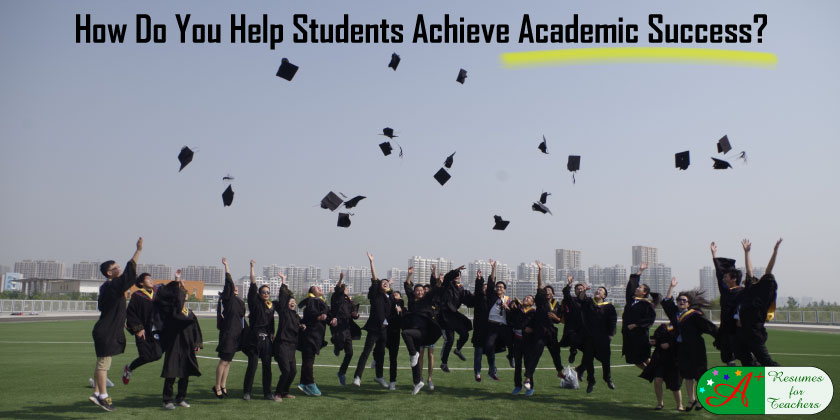Preparing thoughtful responses to teaching interview questions like “How do you help students achieve academic success?” is essential for demonstrating your teaching philosophy, strategies, and commitment to student growth. Below, we’ll explore common interview questions about this topic and provide strategies, examples, and insights to help you craft impactful answers. We’ll also include sample responses and guidance for addressing unusual circumstances in a thank-you letter.
Question 1: How Do You Support Gifted or Exceptional Students?
Supporting gifted or exceptional students involves tailoring instruction to their unique needs while fostering an inclusive classroom environment. Strategies include:
-
Providing Enrichment Opportunities: Offer increasingly challenging assignments or activities to keep students engaged. For instance, if a student finishes their work early, assign a task aligned with higher-grade content or encourage them to explore a passion project.
-
Encouraging Leadership Roles: During group activities, designate exceptional students as leaders to develop their leadership, critical thinking, and problem-solving skills.
-
Differentiating Instruction: Use tiered assignments, independent studies, or personalized learning paths to cater to their advanced abilities.
-
Extracurricular Enrichment: Organize clubs or activities that align with their interests, such as robotics, creative writing, or coding. These opportunities allow gifted students to explore their talents further.
-
Implementing Advanced Programs: Consider pull-out programs, advanced placement (AP) courses, or International Baccalaureate (IB) programs to provide structured, rigorous challenges.
Example Response:
“In my classroom, I support gifted students by providing opportunities to deepen their learning. For example, I once had a student who excelled in mathematics. To challenge them, I incorporated algebraic concepts into their assignments, even though the class was focusing on basic arithmetic. I also encouraged them to lead group problem-solving activities, which not only strengthened their leadership skills but also inspired their peers. Additionally, I collaborated with our school’s gifted program coordinator to create a weekly pull-out session where this student could explore advanced topics in STEM.”
Question 2: How Do You Incorporate Effective Vocabulary-Building Techniques?
Vocabulary development is a cornerstone of academic success. Effective strategies include:
-
Contextual Learning: Avoid rote memorization and instead present vocabulary within meaningful contexts. For instance, teach new words through thematic units or stories that students can relate to.
-
Interactive Tools: Use graphic organizers such as concept definition maps, Venn diagrams, and mind maps to help students visualize relationships between words and concepts.
-
Multisensory Approaches: Incorporate hands-on activities, videos, and illustrations to make learning engaging and memorable.
-
Active Use: Encourage students to use new words in writing and discussions. For example, assign creative writing tasks where they must incorporate specific vocabulary.
-
Repetition and Application: Reinforce new words through repeated exposure in different contexts. Techniques like word walls, flashcards, and vocabulary games can make practice enjoyable.
Example Response:
“I incorporate vocabulary-building techniques that engage multiple learning styles. For example, when teaching a unit on ecosystems, I introduce key terms like ‘photosynthesis’ and ‘biodiversity’ through videos and hands-on activities such as building a mini-ecosystem. Students then create concept maps to connect these terms to what they already know. Additionally, I encourage them to use the words in sentences, discussions, and their own science journals, reinforcing understanding through application. This approach ensures that vocabulary sticks and becomes part of their long-term knowledge.”
Question 3: How Do You Motivate Struggling Students?
Motivating struggling students requires patience, empathy, and strategic interventions. Key approaches include:
-
Building Relationships: Establish trust by understanding their interests, strengths, and challenges.
-
Setting Achievable Goals: Break tasks into manageable steps and celebrate small victories to build confidence.
-
Providing Support: Offer one-on-one assistance, peer tutoring, or additional resources like guided practice sessions.
-
Incorporating Interests: Tailor lessons to incorporate topics or activities that resonate with students.
-
Using Positive Reinforcement: Recognize effort and improvement with praise, rewards, or certificates.
Example Response:
“To motivate struggling students, I focus on building their confidence and connecting learning to their interests. For example, one of my students found reading challenging but loved sports. I introduced them to books about famous athletes and used these as a foundation for improving their reading skills. We set small, achievable goals, such as reading a chapter a week, and celebrated each milestone. Over time, their confidence grew, and they became more engaged in other academic areas as well.”
Addressing Unusual Circumstances in a Thank-You Letter
After an interview, a thank-you letter is an opportunity to address any unusual circumstances or expand on your responses. For example:
-
Clarifying Answers: If you feel you didn’t fully articulate an answer, briefly revisit the question and provide additional insights.
-
Acknowledging Challenges: If unexpected topics arose (e.g., handling a specific school policy or dealing with a unique student population), use the letter to reaffirm your commitment and share relevant experiences.
Sample Thank-You Letter Excerpt:
“Thank you for the opportunity to discuss my approach to supporting gifted students. Upon reflection, I wanted to elaborate on how I integrate technology to enhance learning. For instance, in a previous role, I used coding apps to challenge advanced learners, which not only developed their skills but also fostered collaboration with peers. I’m excited about the potential to implement similar strategies at your school.”
Conclusion
Preparing thoughtful, detailed answers to questions about helping students achieve academic success can set you apart in a teaching interview. By incorporating examples, practical strategies, and an evident passion for student growth, you demonstrate your readiness to make a meaningful impact in the classroom. Don’t forget to follow up with a personalized thank-you letter to reinforce your qualifications and leave a lasting impression.
Discover 152 teacher-specific interview questions and detailed potential answers to prepare you for your following education interview.


